
Harnessing the Potential of the Young Population: A Path to Economic Security
May 17, 2023
PRESIDENT
Air Marshal Asim Suleiman (Retd.)
SEMINAR COORDINATOR
Dr Ghulam Mohey-ud-din
MASTER OF CEREMONY
Nida Rehman Khattak
Executive Summary
Pakistan as a nation and as a society is facing a large number of challenges, both external and internal. A fast changing and rapidly digitising world poses serious questions regarding the role of Pakistan’s future generations in that transformation. To analyse this scenario and explore Pakistan’s options, the Centre for Aerospace and Security Studies (CASS), Lahore, organised a seminar titled “Harnessing the Potential of the Young Population: A Path to Economic Security” on May 17, 2023.
Opening Remarks
While exploring the nexus of human capital, economic security, and national security in his introductory remarks, Dr Ghulam Mohey-ud-din pointed out that Pakistan has the fifth-largest population and sixth-largest workforce in the world. However, its human capital rating is very low. He set the premise for the deliberation of the speakers to explore how economic security can be achieved by leveraging the potential of the young population.
Dr Salman Shah
Highlighting the prevailing economic challenges in Pakistan, such as the high current account deficit and Pakistan’s relationship with the IMF, Dr Salman Shah stressed that the real challenge lies at the micro level, where the ripple effects of mismanagement become evident at the macro level. He proposed transforming Pakistan into an outward-looking economy by fostering skills for competitiveness and productivity. He also highlighted the importance of strategic planning and reforms for human capital formation. Dr Shah also identified the need to develop and tap young people’s potential by integrating them into the national economic framework. He also discussed the ongoing structural transformation in Punjab, which has created both rural and urban economies. His proposed approach revolved around capitalising on the demographic dividend and harnessing pre-existing economic activities to become the next global factory.
Mr Nadir Salar Qureshi The speaker discussed Pakistan’s value in the global economy, highlighting the country’s need to offer more to the world. Despite being the fifth most populous nation in the world, Pakistan only has a 0.4 percent share in global GDP.
To address this, Mr Qureshi proposed providing technical certification to just 20 percent of existing matriculates for overseas placement, which could generate an annual revenue of US $8.6 billion. Similarly, he added that just by training 20 percent of existing university graduates in IT related skills could unlock the potential annual IT exports worth US $9.5 billion. He further suggested increasing the inclusion of women in the workforce to boost the economy. He added that just doubling women’s economic participation could potentially add US $27 billion to the GDP. He was of the view that by implementing these strategies, Pakistan can weather the current economic crisis, improve its global standing, and achieve economic growth.
Mr Mosharraf Zaidi
While discussing the challenges and opportunities faced by Pakistani youth in terms of economic input, Mr Mosharraf Zaidi emphasised the need for an output-oriented approach instead of traditional input-oriented approaches to problem-solving and practical solutions. He pointed out that addressing stunting and malnutrition is critical, as they affect intellectual capacity and are part of a larger human capital crisis. He laid great emphasis on nutrition, literacy rates, survival rates to matriculation, and increasing female labour force participation simultaneously. He also highlighted the government’s responsibility in revamping education system and the need of private sector involvement. He called for increased national cohesion, both institutionally and within the population, and consensus driven leadership.
Concluding Remarks by President CASS
While concluding the seminar and extending the vote of thanks, Air Marshal Asim Suleiman (Retd), President CASS Lahore, highlighted that the world’s population currently stood at eight billion and is projected to reach 10 billion by 2100. He also pointed out that Pakistan is ranked 177th in terms of GDP per capita and 161st on the Human Development Index (HDI). He also observed that the demographic constitution of Pakistan resembled a pyramid with the ageing and the elderly on the narrow top and children and the young at the wide base. Whereas, in the middle of the pyramid are the youth and the middle-aged population, who are the earners and bear the burdens of the entire population.
The President CASS spoke about the need to equip youth with demand-driven skills to ensure human and economic security. He also emphasised on the importance of building a globally competitive workforce and preparing it for digital transformation to ensure human and economic security. He warned that failure to harness this resource could lead to 10 Harnessing the Potential of the Young Population anarchy, with uneducated, unemployed, and dissatisfied youth roaming the streets. Air Marshal Asim Suleiman stressed on utilising the demographic window by investing in education, skills development, and job opportunities. In conclusion, the President CASS stressed that investment in human capital should be a long-term strategic objective requiring collective effort.
Guest Speakers
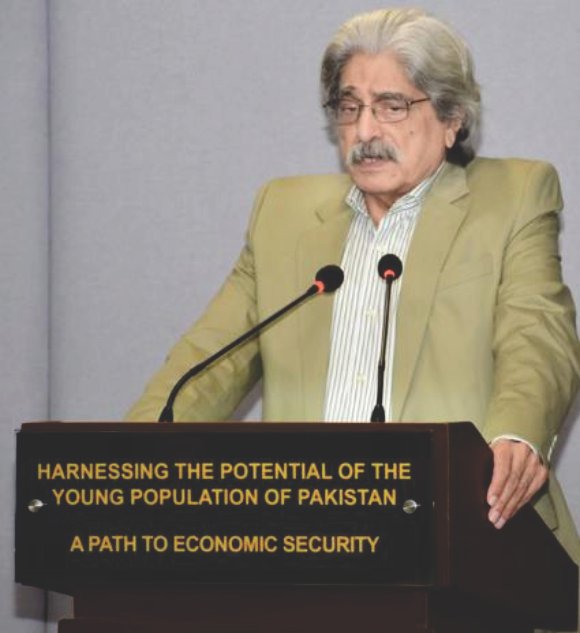
Dr Salman Shah
Former Finance Minister of Pakistan
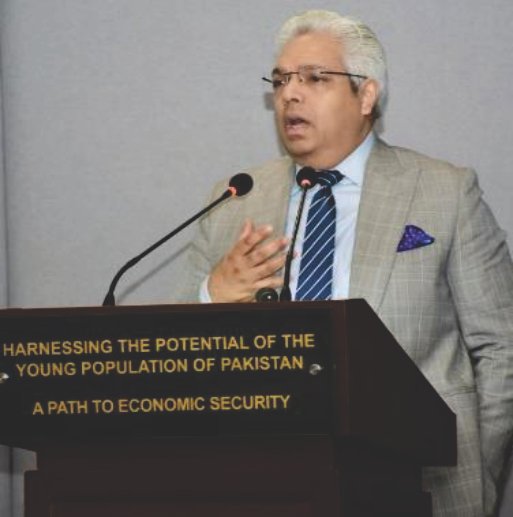
Mr Nadir Salar Qureshi
Chief investment officer, Engro Corporation
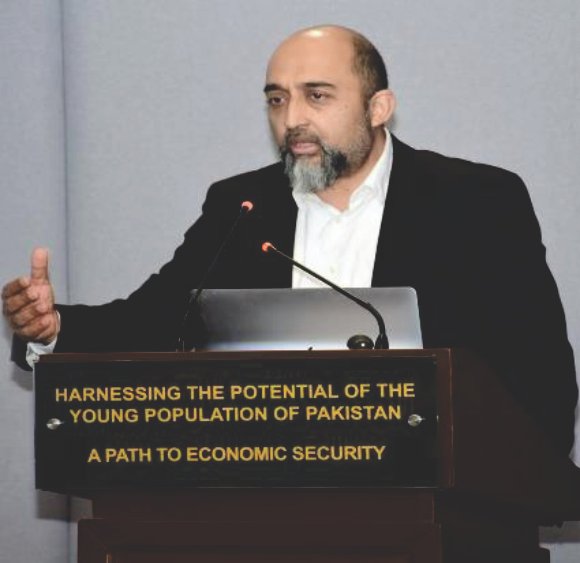
Mr Mosharraf Zaidi
Chief Executive Officer, Tabadlab
CASS Speakers
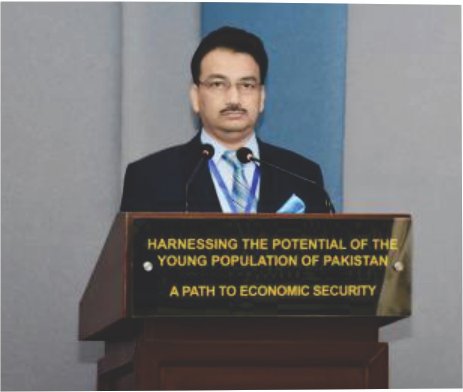
Dr Ghulam Mohey-ud-din
Director Economic Affairs, CASS Lahore
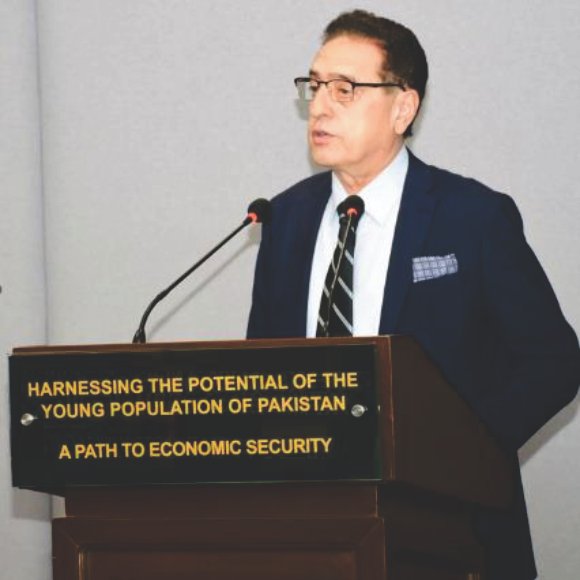
Air Marshal Asim Suleiman (Retd.)
President, CASS Lahore
CASS LAhore

The Centre for Aerospace & Security Studies (CASS) was established in July 2021 to inform policymakers and the public about issues related to aerospace and security from an independent, non-partisan and future-centric analytical lens.


